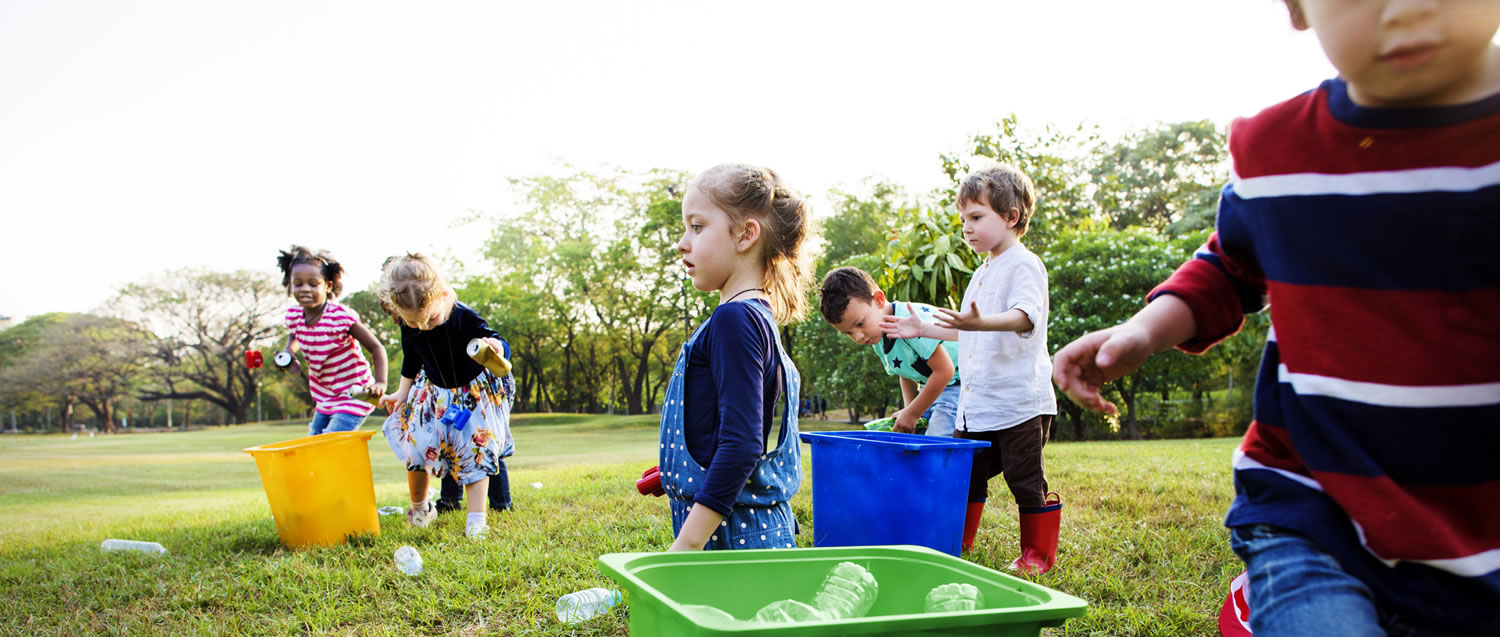The benefits of an eco-friendly child care approach
Published on Wednesday, 01 September 2021
Last updated on Monday, 30 August 2021

All around New Zealand, early childhood education (ECE) services are helping our youngest generation to be good global citizens.
When it comes to sustainable living, the simple act of upcycling materials for craft projects, or growing veggies on-site, teaches great habits early on, and there are wide-ranging benefits when your child attends a ‘green’ service.
Here are three key ways that ECE services help little ones to grow their capabilities, community-mindedness and care for Mother Earth.
1. Going green boosts children’s physical skills
Many sustainable practices at ECE support motor skill development.
Picking freshly grown herbs, pouring worm juice, sorting recycled materials and wielding gardening tools all requires fine motor movements (movements of the small finger, hand and wrist muscles), along with hand-eye coordination.
Meanwhile, gross motor skills get a work-out as children run between garden beds, rake leaves for the compost bin and climb trees (in services that encourage a risk-based approach to play).
These big muscle movement skills tie in with balance, coordination, spatial/body awareness, strength-building and reflexes, so the more outdoor action, the better!
2. Sustainable practices promote children’s social skills
Caring for compost worms, taking turns harvesting tomatoes, sharing in-demand tools, cooperating on a glacier melt experiment and negotiating the best position for each child’s mini-greenhouse are all situations that practice youngsters’ social skills.
Volunteering to be a ‘Waste Watcher’ (someone who’s on the look-out for dripping taps, lights left on and full rubbish bins at their service) gives littlies a sense of responsibility, and engaging with the community helps them understand everyone’s role as custodians of this planet.
Sharing excess produce, or bringing in recycled materials from home, encourages a community spirit, and participation in programmes, like Paper4Trees and awareness days, like Earth Day, connects young children with the wider community.
Time spent outside, both at the ECE service and on excursions, also helps children to appreciate nature and build independence as explorers and eco-warriors, under the safe supervision of educators, and Bush Sprouts is a great example of this.
Some services also promote a feeling of inclusivity and democracy when children and families are involved in the decision-making process around sustainable practices or improvements. For example, when children have a say in what kind of nature play experiences they’d like in the outdoor area.
3. Eco-friendly activities support children’s cognitive skills
Sustainability lessons are easily incorporated into the early learning curriculum.
There are opportunities for children to study the life cycle of flora and fauna, natural recycling, weather systems, pollution and so on; and lots of hands-on activities that build brainpower.
For example, little learners can be shown how to:
- Sort rubbish into colour-coded or picture-labelled bins (waste, recyclables and organic material)
- Manage a compost bin and worm farm
- Find different ways to collect rainwater, then give plants a precious drink
- Grow plants from seed/seedling/cutting, or establish a sensory garden with plants that look, smell, feel, taste and sound interesting
- Make meals using kid-harvested ingredients
- Set up an enviro-experiment, like a compost bottle
- Make musical instruments out of recycled materials, such as a tissue box guitar, and
- Experiment making non-toxic paint and recycled paper (with educators handling the hot water and blender blades).
Many eco-focused ECE services also encourage child-led projects, which might mean that one preschooler’s visit to Franz Joseph or Fox glacier leads to a whole project about glacier thinning and climate change.
Plus, there’s the opportunity to learn from others and gain new perspectives. For instance, a Māori person might help children to understand kaitiakitanga, the traditional system of environmental guardianship, or an educator might teach littlies how to keep – and comprehend – bees!
Children learn from what adults do, as well as what we say, so there’s also great benefit when educators role-model green practices, such as:
- Drinking from a keep cup
- Eating dinner leftovers for lunch (to limit food waste)
- Buying eco-friendly resources for the ECE service, and
- Never, ever throwing rubbish in the wrong bin!
At the end of the day, our children will inherit the Earth, and we all have a role to play in healing it before then. So, feel free to ask your ECE service about its sustainability philosophy, encourage your little one’s enviro-engagement, and think about ways your family can go green for everyone’s benefit.
Related Articles

A case study in sustainability Setting up children, and the planet, for the future
The children at Learning Adventures Warkworth can teach many others a few things about sustainability.

Goodbye glitter, hello new world of shiny eco-sparkles
Why banning glitter is so important and a variety of alternatives for early education services.

Teaching sustainability to young people
10 simple strategies for teaching children in early education settings about sustainability, through simple activities and play-based learning.
